‘The Lady’ of Burma faces difficult choices
The
tightly orchestrated press conference featuring Hillary Clinton and
Aung San Suu Kyi at the Burmese opposition leader’s lakeside residence
on Friday had an unmistakably presidential feel.
After
lengthy talks, the two women went for a stroll in the garden before
emerging to face the media from the veranda of the house where Ms Suu
Kyi was detained by Burma’s military dictators for 15 years until her
release last November.
More
ON THIS STORY
- Editorial Comment Cautiously does it
- Suu Kyi seeks ‘good relations’ with China
- In depth Burma
- Suu Kyi set to run in Burmese elections
- Clinton seeks closer Burma ties
ON THIS TOPIC
- David Pilling Burma’s Botox revolution
- Wary Burmese savour taste of reform
- Burma backed to take turn at Asean helm
- Burma At freedom’s gate
IN ASIA-PACIFIC
The
political theatre was to be expected given that both women were once
close to assuming the leadership of their respective countries. But
while Mrs Clinton is thought unlikely to seek the presidential
nomination again, Ms Suu Kyi is re-entering the rough and tumble of
politics after a long, enforced hiatus.
Mrs Clinton’s visit to Burma,
the first by a US secretary of state for more than 50 years, is part of
a wider US strategy of re-engaging with south-east Asian nations to
balance the growing clout of Beijing. But speaking alongside Mrs Clinton
on Friday, Ms Suu Kyi suggested Burma should not have to choose between
the world’s two great powers. “I was very pleased to read today that
the Chinese foreign ministry put out a statement welcoming the
engagement of the US in Burma,” she told reporters, adding: “This shows
that we have the support of the whole world and [I am] particularly
pleased because we hope to maintain good, friendly relations with China, our very close neighbour.”
While
Ms Suu Kyi’s return to mainstream politics was welcomed by Mrs Clinton,
questions abound over what role the opposition leader, admired by her
supporters for her adherence to principle over pragmatism, can play in
the new Burma. Last month, her National League for Democracy said it
would reregister as a political party to fight the by-elections, in
which 48 parliamentary seats will be contested. Ms Suu Kyi is widely
expected to win one of them.
The
decision, which was criticised by some hardliners within her party,
marked a significant shift in position by Ms Suu Kyi, who for more than
20 years refused to acknowledge the legitimacy of a junta that had
annulled the 1990 general election, which the NLD won by a landslide.
Nyi Nyi Win, an NLD activist and former political prisoner, is among
those who worry the government is trying to co-opt Ms Suu Kyi before it
has guaranteed genuine freedoms and human rights. “The generals are
trying to strengthen their position by shedding their uniforms,” he
says. “I’m not pleased but I will follow my leader.”
Ms
Suu Kyi’s about-turn has been caused by unexpected moves to open up the
country taken in recent months by Thein Sein, the president and a
former general who took the helm of a nominally civilian government in
March. The government has opened direct talks with Ms Suu Kyi, freed
more than 200 political prisoners, eased censorship and vowed to
implement further political and economic reforms.
Mr
Thein Sein and Ms Suu Kyi have developed an unlikely rapport, according
to people who have worked with both. The Oxford-educated democracy
campaigner says she believes her former jailer is genuine in his efforts
to establish more freedom and encourage development in one of Asia’s
poorest nations.
Mrs
Clinton said she supported Ms Suu Kyi’s decision to stand for election
and she would make “an excellent addition” to Burma’s parliament. But
the US secretary of state warned her she would find politics tough, not
least because in Burma “the rules are being written as you engage”.
If
she does get into parliament, Ms Suu Kyi, her supporters and the
government will all face difficult choices as they seek to define her
role. Until now she has been highly influential both inside Burma and
around the world. But the risk, according to one foreign diplomat, is
that she goes from being the international face of Burma’s democracy
movement to “just another MP”.
Mr
Thein Sein and other senior officials know they need her onside if they
are to persuade the US and other western nations to ease the sanctions
that have contributed to Burma’s isolation and impoverishment.
In
the tea shops and foreign embassies of Rangoon, there has been talk the
government may try to offer her a symbolic or advisory role, although
most think it unlikely that she would join at this stage. Some critics
within her party and beyond believe she is cosying up too quickly and
not drawing enough concessions, with hundreds of political prisoners
still in jail, freedoms still limited and the economy in the hands of
the generals and their cronies.
“For
20 years, the regime viewed her as a liability but now they are trying
to turn her to their advantage,” says one local activist. Others argue
she is moving too late and that she delayed the reform process through
her previous principled stance.
Either
way, as she returns to the political fray wrapped in a new cloak of
pragmatism, “The Lady”, as she is widely known, is likely to face many
more “slings and arrows” – in Mrs Clinton’s words.





















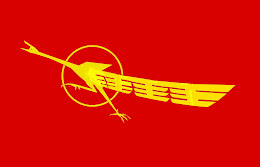





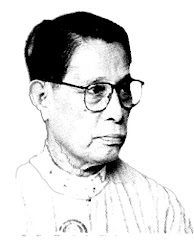



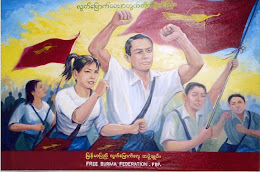





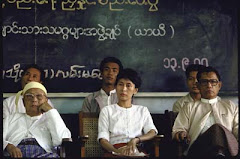

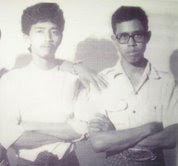

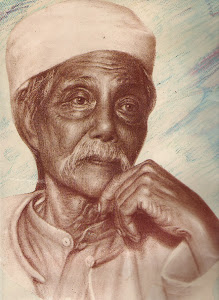
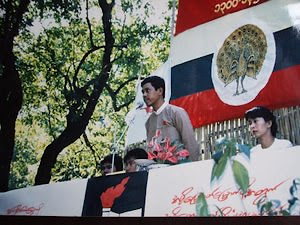
No comments :
Post a Comment